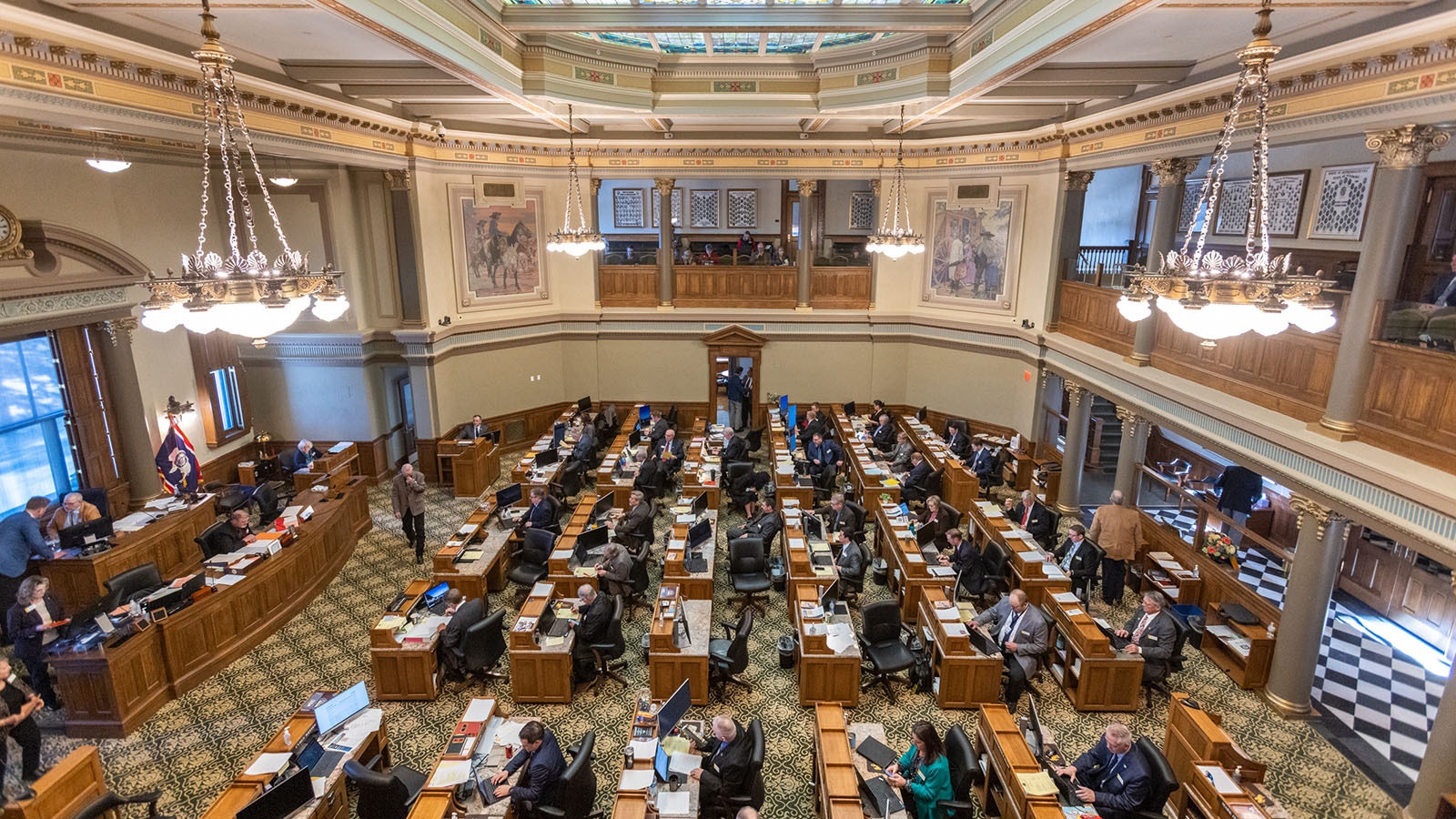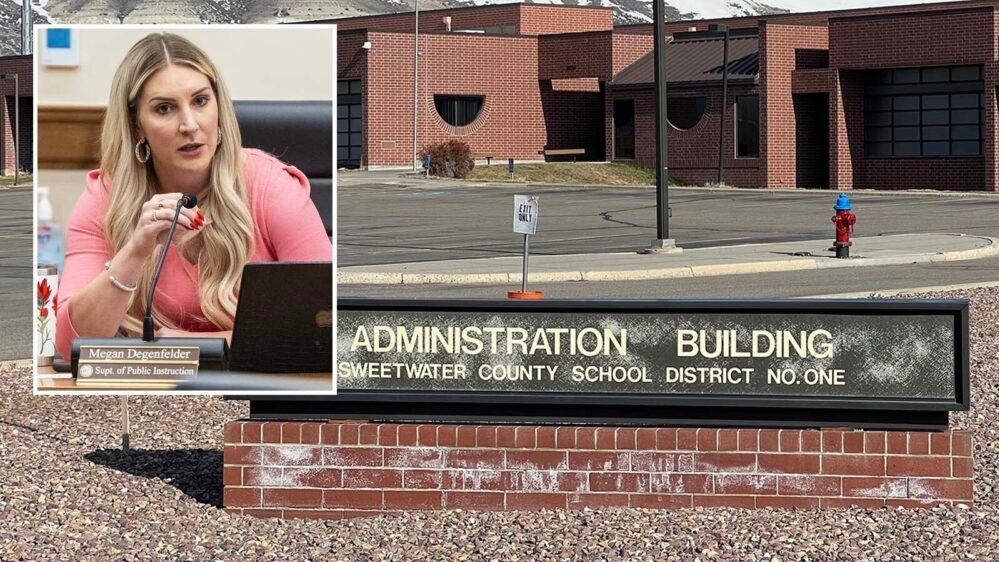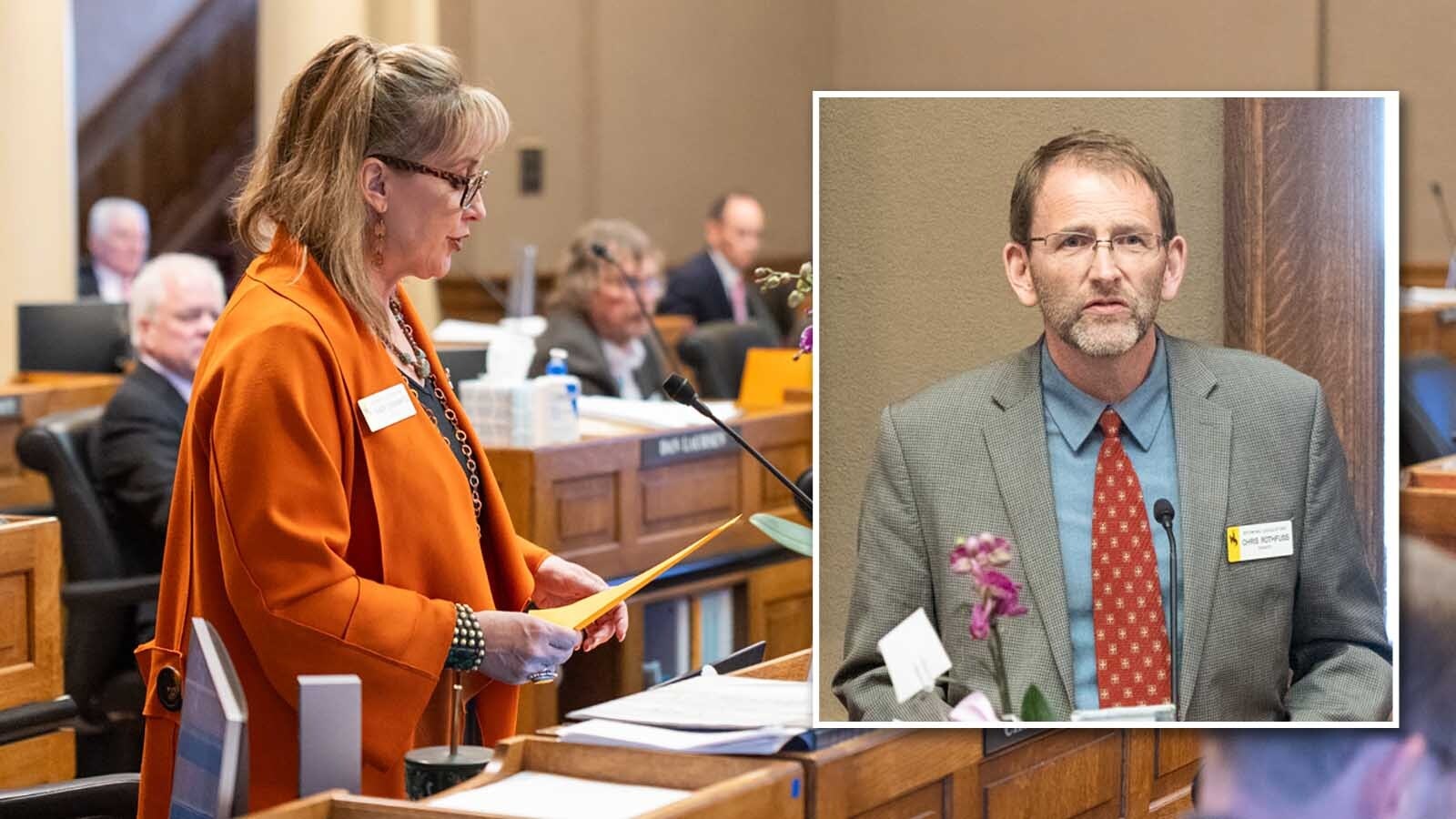Although both are made up of conservatives who want to influence Wyoming politics, the Wyoming Caucus and Wyoming Freedom Caucus are in some fundamental philosophical ways miles apart in their approaches to generating support for the 2024 legislative session and elections.
Both caucuses, made up by members of the two main wings of the state Republican Party, signaled earlier this year they are already gearing up for the next campaign season when they set up political action committees and corresponding websites.
The Wyoming Freedom Caucus is made up of the party’s more hardline conservatives, while the Wyoming Caucus is considered to be more moderate Republicans.
And while they may be close on many Republican conservative issues, there’s a large gap in philosophy about how loyal to the party platform members should be and how much money the groups have to achieve their goals in 2024.
The Numbers
Both caucuses are supported by a respective political action committee (PAC) responsible for handling their campaign finances and affairs. Since neither PAC was created until this spring, the public won’t get an exact snapshot of their financial records until the end of the year when they’re mandated to report.
The official filing deadline for campaign finances for the 2023 year is Dec. 31, but representatives from both caucuses recently gave ballpark estimates to Cowboy State Daily as to how much money they’ve raised so far.
Rebekah Fitzgerald, treasurer of the Wyoming Caucus PAC, said her organization is a little more than 1/3 of the way toward its goal of raising $200,000 to $300,000 for the 2024 election season, which roughly puts the caucus at about $66,000 to $100,000 raised so far.
“We’re feeling good about that,” Fitzgerald said.
State Rep. John Bear, R-Gillette, chairman of the Freedom Caucus, said he doesn’t know exactly how much money the Wyoming Freedom PAC has raised so far, but suspects it’s not much more than the $30,000 he’s personally raised over the last year. He said individual phone drives and email fundraising efforts engaged by his group haven’t been so fruitful.
Kari Drost, chairman of the Freedom PAC, offered a similar sentiment and said her organization has more than $30,000 in the bank after covering its own expenses and withholding from engaging in any full-scale fundraising.
“I am confident that when we ramp up our efforts, the donations will increase significantly,” she said in an email. “I have been approached by many Wyomingites who are very concerned about the direction in which our state is currently headed and are looking for a return to the traditional Republican values exemplified by the WY Freedom PAC.”
Engagement
Fitzgerald said she sees the Wyoming Caucus as more of a behind-the-scenes support network for its preferred candidates rather than a “packaged-style” campaign advertiser and messaging source that may hold rallies and other public events.
State Rep. Clark Stith, R-Rock Springs, one of the leaders of the Wyoming Caucus, said the group is focused on taking a localized approach to issues.
“We believe in taking a common sense approach to state government,” Stith said. “The conservatives in the Wyoming Caucus believe in Wyoming solutions for Wyoming problems.”
The Freedom Caucus has been active in publicizing its activities and events, hosting a series of more than 20 town halls so far this year that it has heavily promoted and livestreamed on Facebook.
Bear said the group has made a particular effort to engage with the public during these events, allowing for full question and answer sessions, which he said has fostered a strong relationship with their constituents.
“Which means we’re listening to the people, we’re finding out what things concern them the most and how they would like for us to address them,” he said.
The Wyoming Caucus has been keeping a somewhat lower profile, as its public engagement events have not been as publicized or as frequent.
But Stith said the group’s events have been successful, typically drawing support from about 30-50 people on average during events held this fall in Cheyenne, Cody, Sheridan, Jackson and Casper. He said their members want the group to be flexible and open to different streams of conservative thought.
“Not everybody who shows up, we’re not necessarily going to agree with everything they’re saying, but we do want to hear from our constituents and what they are wanting,” he said.
Republicans V. Republicans
Fitzgerald said the Wyoming Caucus has been recruiting locals around the state to help with their fundraising efforts and a place for like-minded people to gather and have conversations about policy issues like education savings accounts and the proposed Rocky Mountain Power rate hikes.
The group is targeting the 2024 election season for when it will really start accelerating its efforts for the election.
Bear said the Freedom Caucus is doing the work of the people while the Wyoming Caucus is focusing on fundraising, a point that Stith contests.
“Our conservative commitment to Wyoming and its people is reaching out to everybody in the Legislature to achieve common goals,” Stith said. “We believe we have broad based support and similarly, it’s unprecedented to have a sitting Republican attack other legislators from his own party.”
Bear mentioned how the Freedom Caucus held a town hall opposing the BLM’s proposed Resource Management Plan in September, which he believed led to an onslaught of Wyoming-based criticism of the project.
“I think that’s indicative of the people saying we’re not getting what we want out of this supermajority Republican Legislature, we’re going to have to do it ourselves,” Bear said.
A Tale Of Two Caucuses
He also said the Wyoming Caucus is copying his group’s name and agenda.
Bear isn’t concerned with any kind of funding disparity, and drew a comparison to the 2022 Wyoming Republican congressional campaign between former U.S. Rep. Liz Cheney and Wyoming congresswoman Harriet Hageman. Although Cheney drastically outraised Hageman, Hageman beat Cheney by around 38 percentage points in the August, 2022 primary.
“I believe they believe raising millions from Liz Cheney supporters will keep them in office,” Bear said. “What really matters is having a connection with the people.”
It’s also important to note that the Freedom Caucus is supported and connected to the national State Freedom Caucus Network, which could step in to serve as a significant funding arm for the Freedom Caucus into the spring and as the 2024 elections get closer.
The Wyoming Caucus has planted its flag on being a Wyoming-focused group concerned with Wyoming-based problems. Fitzgerald believes the two caucasus aren’t that far apart on policy, but nationalized bills is where there may be the widest gap between the groups.
“That’s the goal of the caucus is supporting those Wyoming-based values,” Fitzgerald said.
The Freedom Caucus has taken a little more of a macro-level approach to some of its legislative policy, at times drawing inspiration from legislation and other issues addressed in other states. Members have defended this approach as getting ahead of problems before they arrive in Wyoming.
Future Campaign Plans
The Freedom Caucus has frequently portrayed itself as playing an underdog, grassroots role within the Legislature, and until making recent gains during the 2022 elections, the group’s numbers roughly supported that identity.
But now it stands on the precipice of taking over a majority of Republican seats in the House entering the elections next fall, which would give the Freedom Caucus control of the GOP-supermajority it holds in the chamber.
Bear said he believes the 2024 campaign season will enter into full swing as soon as the 2024 legislative session ends in early March.
“It’s going to be a tough election for both sides,” Bear said. “I think they’re going to use money to present a narrative. They’ll have a hard time breaking through our relationship with the people.”
Fitzgerald said it’s the goal of the Wyoming Caucus to elect members to the House who are focused on Wyoming and are “common sense conservative Republicans.”
“We want to elect people that want to work on policy and Wyoming policy,” she said. “There is a fundraising element to that because we want to use dollars to elect those people or keep people in those seats that have focused on Wyoming-centric policy.”
Leo Wolfson can be reached at leo@cowboystatedaily.com.





